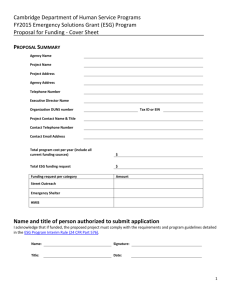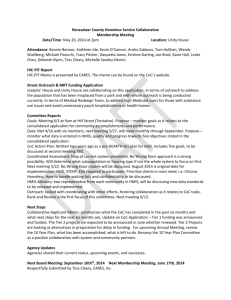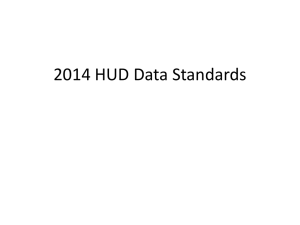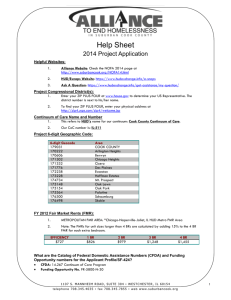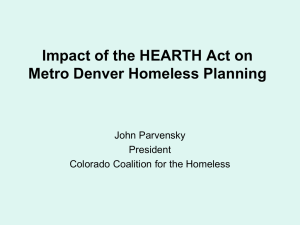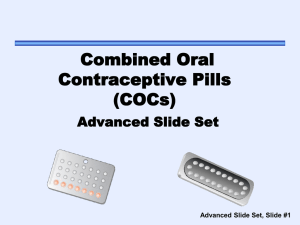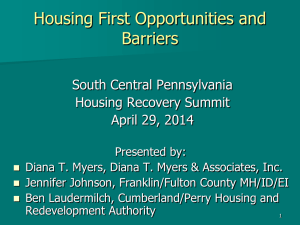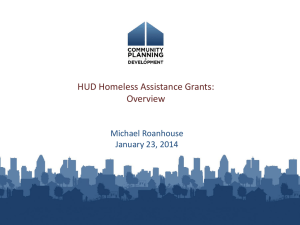FY2015_CambCoC_PHBonus_RFP - Cambridge Continuum of Care
advertisement
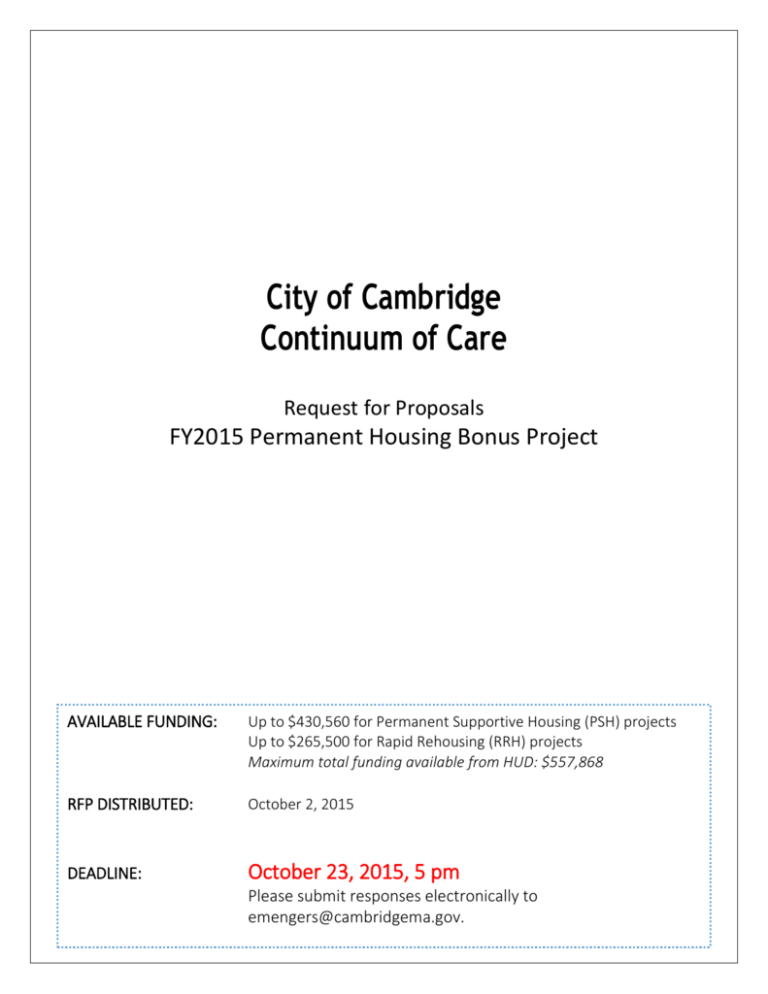
City of Cambridge Continuum of Care Request for Proposals FY2015 Permanent Housing Bonus Project AVAILABLE FUNDING: Up to $430,560 for Permanent Supportive Housing (PSH) projects Up to $265,500 for Rapid Rehousing (RRH) projects Maximum total funding available from HUD: $557,868 RFP DISTRIBUTED: October 2, 2015 DEADLINE: October 23, 2015, 5 pm Please submit responses electronically to emengers@cambridgema.gov. Cambridge Continuum of Care 2015 CoC Program Competition Request for Proposals FY2015 Permanent Housing Bonus Project I. INTRODUCTION AND PURPOSE This Request for Proposals (RFP) is being issued by the Cambridge Department of Human Service Programs (DHSP), which is the Collaborative Applicant for the Cambridge Continuum of Care (CoC). This RFP includes all of the information necessary to submit a proposal for the FY2015 Permanent Housing (PH) Bonus Project and describes the conditions under which proposals will be accepted, reviewed, and selected. The purpose of this RFP is to select housing and service provider(s) to be included as sub recipients in the CoC’s PH Bonus Project proposal that will be submitted as part of the FY2015 CoC Program application to the U.S. Department of Housing and Urban Development (HUD). Ending chronic homelessness is the first goal of the Federal Strategic Plan to End Homelessness. Progress toward meeting this goal is a top priority for HUD, and CoCs are scored against this goal in the annual competitions for limited CoC funding. In 2014, the Cambridge CoC was categorized by HUD as having “extreme high need” related to chronic homelessness based on data from the 2013 Point in Time (PIT) count (167 chronically homeless individuals), and data from the 2014 and 2015 PIT counts further confirm the need for additional units dedicated for chronically homeless individuals. The FY2015 PH Bonus Project competition presents a rare opportunity to significantly expand the number of units dedicated to chronically homeless clients in Cambridge, and will help the CoC make progress toward the Federal Strategic Plan goal of ending chronic homelessness by 2017. HUD has also identified Rapid Rehousing (RRH) as a cost effective strategy for quickly housing families and individuals using time-limited tenant-based rental assistance. The FY2015 PH Bonus Project provides CoCs with the opportunity to create new RRH projects that will serve individuals, families or unaccompanied youth who come directly from the streets or emergency shelters, or who are fleeing domestic violence (category 4 of HUD’s homeless definition). II. PROJECT TYPES & BUDGET REQUIREMENTS The Cambridge CoC may apply for multiple Bonus projects as part of the 2015 CoC Competition. Proposals may be submitted for two different types of projects: 1. Permanent Supportive Housing (Leasing or Rental Assistance) for individuals experiencing Chronic Homelessness.1 The proposed project must provide scattered site leasing assistance or tenant-based rental assistance2 for up to 20 chronically homeless individuals in Cambridge using a Housing First model. Respondents proposing a PSH project may apply for projects that would serve at least 5 participants and up to 20 participants based on a total award of up to $430,560. a. A maximum of $287,040 is available for Leasing or Rental Assistance (based on the 2015 Fair Market Rent for 20 1 bedroom units). b. A maximum of $123,017, or 30% of the proposed budget excluding Administrative costs, is available for Supportive Services costs. c. A maximum of $20,503, or 5% of the total proposed budget, is available for Administrative costs. 2. Rapid Rehousing (Rental Assistance) for individuals and/or families (including unaccompanied youth) coming directly from the streets or emergency shelters, including persons fleeing domestic violence situations. The proposed project must provide short or medium-term tenant-based rental assistance for individuals and/or families. The number of participants served will depend on the proposed budget, but must be determined based on a total award of up to $265,500. 1 The FY 2015 CoC Program NOFA allows permanent housing bonus proposals for PSH projects serving chronically homeless families, but the Cambridge CoC’s data support prioritizing projects for chronically homeless individuals rather than for families. 2 Project-based rental assistance is also an eligible cost if sub recipient can demonstrate site control and units can be ready for occupancy within 6 months of a funding award. 2 Cambridge Continuum of Care 2015 CoC Program Competition Request for Proposals FY2015 Permanent Housing Bonus Project a. A maximum of $177,000 is available for Rental Assistance. The Housing Budget Workbook must be used to determine the Rental Assistance budget and unit configuration based on the 2015 Fair Market Rents. b. A maximum of $75,857, or 30% of the proposed budget excluding Administrative costs, is available for Supportive Services costs. c. A maximum of $12,643, or 5% of the total proposed budget, is available for Administrative costs. Agencies wishing to apply for both project types must submit two separate proposals. III. GRANT TERM AND FINAL PROPOSAL AMOUNT The proposal submitted to HUD will be for a one year grant term. If awarded funds, the project will be eligible for renewal through the annual CoC Program NOFA. The maximum amount of funding available from HUD is lower than the combined maximum amounts for each component type defined in this RFP. The CoC Board’s Evaluation Panel will review proposals and determine which responses will be incorporated into the CoC’s final application to HUD, and may conditionally select proposals based on a lower budget. The amount of funds and the type of project model the CoC submits to HUD for consideration under the 2015 PH Bonus will depend upon the following factors: 1. The quality of proposals submitted by respondents to this RFP; and 2. The recommendations adopted by the CoC’s Evaluation Panel, which will determine ranking strategy and funding priorities for the CoC. a. In 2015, the Bonus project must be ranked with all renewal projects for the CoC, meaning that the amount and rank of the Bonus project may impact the risk of nonrenewal for existing projects. IV. PROJECT REQUIREMENTS A. THRESHOLD REQUIREMENTS i. Proposal must indicate a program design that is either: a. Permanent Supportive Housing (PSH) serving 100% chronically homeless individuals; or b. Rapid Rehousing (RRH) serving homeless individuals and families coming directly from the streets or emergency shelters, and/or persons fleeing domestic violence situations.3 ii. Proposal must request only eligible costs as described in Section V.C. iii. Proposal must be complete and submitted on time. iv. Applicant must be an eligible applicant as described in Section V.B. and in 24 CFR 578.15. v. Applicant must have a DUNS number. vi. Applicant must demonstrate the financial and management capacity to carry out the proposed project. vii. Applicant must agree to participate in the Homeless Management Information System (HMIS), and in the CoC’s Coordinated Access system once it is implemented (planned for CY 2016). B. ELIGIBLE APPLICANTS Eligible proposal applicants include private non-profit agencies and public housing agencies (PHAs). Applicants may submit a proposal to provide housing and/or supportive services. DHSP may select multiple sub recipients to deliver the housing and services, and encourages agencies to submit joint proposals when appropriate. C. ELIGIBLE COSTS i. PSH PROJECTS a. Scattered-site Leasing: The costs of leasing scattered site units to provide housing to homeless persons (sub recipient contracts for the space from landowner and subleases units to clients. 3 Agencies wishing to apply for both project types must submit two separate proposals. 3 Cambridge Continuum of Care 2015 CoC Program Competition Request for Proposals FY2015 Permanent Housing Bonus Project Leasing funds may not be used to lease units or structures owned by the recipient of funds. Rents paid must be reasonable in relation to comparable units. Rents paid with CoC Program funds may not exceed HUD’s Fair Market Rent (FMR), but non-CoC funds can be used to pay rent in excess of FMRs4. b. Tenant-based Rental Assistance: Provision of financial assistance to pay housing costs of eligible homeless persons (client must have a signed lease directly with the landowner). Sub recipients must match rental assistance funds with at least 25% cash or in-kind contributions. Unit rents can exceed FMR, but if the sub recipient pays rent beyond FMR, they must ensure they have sufficient funding to serve the contracted number of clients.* Project-based rental assistance is also eligible under the PSH Bonus Project if the applicant can demonstrate site control and units will be available for occupancy no later than 6 months after the award of funds. c. Supportive Services related to Housing Stability: See 24 CFR 578.53 for a full description of eligible supportive services costs. d. Administrative costs: See 24 CFR 578.59 for a full description of eligible administrative costs. ii. RRH PROJECTS a. Tenant-based Rental Assistance: Provision of short or medium-term (maximum of 24 months) financial assistance to pay housing costs of eligible homeless persons (client must have a signed lease directly with the landowner). Sub recipients must match rental assistance funds with at least 25% cash or in-kind contributions. Unit rents can exceed FMR, but if the sub recipient pays rent beyond FMR, they must ensure they have sufficient funding to serve the contracted number of clients. b. Supportive Services related to Housing Stability: See 24 CFR 578.53 for a full description of eligible supportive services costs. c. Administrative costs: See 24 CFR 578.59 for a full description of eligible administrative costs. D. MATCHING FUNDS AND LEVERAGE The applicant must match all grant funds, except for leasing funds, with no less than 25% of funds or in-kind contributions from other sources. 24 CFR 578.73 provides detailed information about cash and in-kind match requirements. If selected, the applicant will be responsible for gathering match commitment letters for the proposal. Applicants must leverage other services or funds for program participants. The expectation is that the use of leveraged additional resources will enable applicants to develop a comprehensive project that meets the needs of the chronically homeless and ensure successful program outcomes. In particular, the service needs of chronically homeless persons may be met through leveraging of Medicaid-financed services, including case management, tenancy supports, behavioral health services, or other services important to supporting housing stability. Applicants must commit to gathering leverage commitments equal to at least 150% of the requested funds. If selected, the applicant will be responsible for gathering leverage commitment letters for the proposal. Guidance regarding leverage is provided in Appendix D of this document. 4 In recognition of the difficulty of locating units in Cambridge within FMR, funds have been identified to assist the sub recipient of PSH Projects in paying reasonable rents that exceed FMR. These funds will support the difference between actual rent and FMR (up to 20% above FMR). These additional funds, CoC Program funds and client contributions will support rental costs for up to 20 one bedroom units in Cambridge. 4 Cambridge Continuum of Care 2015 CoC Program Competition Request for Proposals FY2015 Permanent Housing Bonus Project E. HOMELESS MANAGEMENT INFORMATION SYSTEM (HMIS) All selected project sub recipients, with the exception of entities that are victim service providers, must agree to participate in the CoC’s HMIS system. F. COORDINATED ACCESS SYSTEM All selected project sub recipients must agree to accept referrals from the CoC’s unified, prioritized waiting list, and participate in the CoC’s Coordinated Access system (anticipated to launch during CY 2016). V. TIMELINE Release RFP October 2, 2015 Proposal submission deadline Submit electronically to emengers@cambridgema.gov October 23, 2015 5 pm Proposals evaluated October 23-30, 2015 Notice of selection November 2, 2015 Hard copies of Leverage and Match letters due to DHSP November 13, 2015 Finalize proposal for HUD application November 2-13, 2015 Submit full application in e-snaps system November 16, 2015 VI. SELECTION PROCESS DHSP staff will conduct a threshold review of each proposal using the criteria listed in Section IV.A. of this RFP. Proposals that meet all threshold requirements will be evaluated by the CoC Board’s Evaluation Panel, comprised of Board members with no financial stake in the competition. The Evaluation Panel will meet between October 28 and 30 to evaluate and select a provider(s) for inclusion in the CoC’s PH Bonus Project proposal to HUD. Please see Appendix C for the scoring criteria that will be used for evaluation. Selection for inclusion in the CoC’s proposal to HUD does not guarantee funding. A funding award is contingent upon selection by HUD. If HUD awards the project at a lesser amount than requested in the application, sub recipient awards will be adjusted accordingly. VII. PROPOSAL REQUIREMENTS To be considered for inclusion in the CoC’s application to HUD, applicants must electronically submit: A. Proposal cover sheet (Appendix A) B. Budget form (Appendix B) and Housing Budget Workbook C. Proposal Narrative Please provide a specific, concise response to each item listed below. All proposals, even those requesting just one component (housing or services) must address each item. Please limit your full Proposal Narrative to a maximum of 4 single-spaced pages. 1. PROGRAM DESIGN a. Concept: Describe program design (specify PSH or RRH) and service model and how your agency will implement the full scope of proposed housing and supportive services. If submitting a joint proposal that includes partner agencies, fully describe coordination with partners. The description must specify the target population, and include projected outcomes for clients that will improve the CoC’s system-level progress toward meeting Federal Strategic Plan goals. Inclusion of evidence-based or promising practices/approaches in the project design, such as 5 Cambridge Continuum of Care 2015 CoC Program Competition Request for Proposals FY2015 Permanent Housing Bonus Project Critical Time Intervention, Harm Reduction, and/or Motivational Interviewing, are encouraged, especially for PSH projects serving chronically homeless individuals. b. Housing First: Applicants must commit to using a Housing First program design and must clearly describe experience operating or contributing to a Housing First program. Respondents must ensure that clients will not be screened out for any of the following reasons: too little income, active substance abuse, criminal record, or history of domestic violence. Additionally, the response must ensure that clients will not be terminated from the project for any of the following reasons: failure to participate in supportive services, failure to make progress on a service plan, loss of income or failure to increase income, or experiencing domestic violence. c. Coordinated Assessment and Prioritizing Highest Need: 1. PSH Component: Applicants must indicate commitment to working with the CoC’s HMIS Staff and Coordinated Access Staff, HMIS Working Group, and the Emergency Solutions Working Group to select and implement a standardized assessment tool that will be used to determine severity of service needs and target the highest need CH clients in the CoC. Applicants must commit to housing and/or serving any CH client from the CoC in compliance with HUD’s Notice CPD 14-012; client pool cannot be limited to the agency’s existing clients. Applicants are encouraged to include in their response proposed tools and/or methods to effectively target the CoC’s highest need CH clients. 2. RRH Component: Applicants must indicate commitment to working with the CoC’s HMIS Staff and Coordinated Access Staff, HMIS Working Group, and the Emergency Solutions Working Group to implement coordinated access to the proposed project, through use of a coordinated assessment tool. Referrals cannot be limited to the applicant’s existing clients/wait list. d. Mainstream services: Applicants must describe the extent to which the project will utilize mainstream resources for supportive services. At a minimum, applicants should indicate that specific activities will be incorporated into the project to identify and enroll all Medicaid-eligible program participants. The narrative should describe if the project includes Medicaid-financed services, including case management, tenancy supports, behavioral health services, or other services important to supporting housing stability. e. Rapid implementation: Applicants must demonstrate a plan for rapid implementation of the program; the narrative must document how the project will be ready to begin housing the first program participant within 6 months of the award. f. Coordination and linkages: Describe how applicant will cooperate and partner with local landlords, other homeless service providers, and any other relevant public and private agencies to optimize outcomes, including housing stability, for clients. 2. APPLICANT’S EXPERIENCE/CAPACITY a. Describe agency’s experience and staff qualifications in providing housing and/or homeless supportive services. Include details specific to serving the proposed target population. b. Describe the agency’s fiscal and administrative capacity to effectively administer housing assistance and/or supportive service provision. Please include any applicable experience related to federal homeless assistance grants or other similar experience. 6 Cambridge Continuum of Care 2015 CoC Program Competition APPENDIX A – PROPOSAL COVER SHEET FY2015 PH Bonus Project RFP PROPOSAL COVER SHEET AGENCY INFORMATION Agency Name: Mailing Address: Agency DUNS #: Program Contact Name, Phone Number, and Email Address: Fiscal Contact Name, Phone Number, and Email Address: PROPOSAL TO PROVIDE (SELECT ALL THAT APPLY): Permanent Supportive Housing (PSH) for chronically homeless individuals Leasing assistance Tenant-based rental assistance (must be matched at 25%) Project-based rental assistance (must demonstrate site-control and provide 25% match) OR Rapid Rehousing (RRH) for individuals and/or families Tenant-based rental assistance (must be matched at 25%) Supportive Services Outreach Moving costs Utility deposits Life skills Housing search/counseling Case management Food Transportation CERTIFICATIONS Applicant must certify that each of the following documents will be submitted to DHSP if selected for funding: Certified Organization Audit/Financial Statements of most recent year Proof of nonprofit status Applicant must certify that it has each of the following agency policies: Code of Conduct and Conflict of Interest Financial Management Policies and Procedures Drug-Free Workplace Affirmatively Furthering Fair Housing Reasonable Accommodation and Accessibility for Persons with Disabilities Nondiscrimination and Equal Employment Client Confidentiality To the best of my knowledge and belief, all information in this proposal is true and correct. The applicant will comply with all of the requirements of the RFP if an agreement is awarded. E-SIGNATURE Typed Name of Authorized Representative Title 7 Cambridge Continuum of Care 2015 CoC Program Competition APPENDIX B – BUDGET FORM FY2015 PH Bonus Project RFP LEASING OR RENTAL ASSISTANCE # of units Respondents must use the Housing Budget Workbook to calculate the proposed Leasing or Rental Assistance budget. The Housing Budget Workbook must be included with the proposal submission. TOTAL SUPPORTIVE SERVICES Eligible costs Quantity AND Description Annual Assistance Requested Assessment of Service Needs Assistance with Moving Costs Case Management Child Care Education Services Employment Assistance Food (meals or groceries for clients) Housing Search and Counseling Legal Services Life Skills Mental Health Services Outpatient Health Services Outreach Services Substance Abuse Treatment Transportation Utility Deposits TOTAL (max 30% of total request excluding Administrative costs) SUBTOTAL (Leasing or Rental Assistance + Supportive Services) TOTAL ADMINISTRATIVE COSTS REQUESTED (max 5% of subtotal) TOTAL ASSISTANCE REQUESTED Planned Source(s) of Match If selected, applicant must provide hard copy letters to DHSP by Nov. 13. Total (must equal 25% of total request excluding leasing) Source 1; Source 2; Source 3; etc. Planned Source(s) of Leverage If selected, applicant must provide hard copy letters to DHSP by Nov. 13. Source 1; Source 2; Source 3; etc. Total (must equal 150% of total request) 8 Cambridge Continuum of Care 2015 CoC Program Competition Component APPENDIX C - SCORING CRITERIA FY2015 PH Bonus Project RFP Does not satisfy (0 points) Partly satisfies (6 points) Substantially satisfies (8 points) Fully satisfies (10 points) Total Project concept – Proposal narrative clearly describes a feasible concept for a PSH project serving 100% CH individuals that will select participants from a unified, prioritized list of CH individuals in the CoC, or for a RRH project that will rapidly house households (individuals, families, unaccompanied youth, and/or persons fleeing domestic violence) identified through a coordinated assessment process. Proposal demonstrates willingness to collaborate with other sub recipients and/or partners on this project; includes proven or promising practices; and includes proposed client outcomes that will improve the CoC’s system-level progress toward meeting Federal Strategic Plan goals. Project design and activities Housing First – proposal indicates a clear commitment to a Housing First program design and includes required assurances related to screening and termination, and includes applicant’s experience operating or contributing to a Housing First program. Coordinated Assessment and Prioritizing Highest Need Clients – proposal demonstrates strong commitment to piloting these new CoC requirements, and indicates willingness to work with the broad range of CoC partners necessary for successful implementation. Mainstream Services – proposal clearly explains how program participants will be enrolled in Medicaid and other services; and a description of Medicaid-financed services included in the program. Coordination and Linkages – proposal clearly describes how applicant will partner with landlords, other service providers, and other relevant partners to optimize outcomes for clients. Budget detail – Budget request is reasonable and appropriate, items align with project activities; costs are within funding guidelines; and demonstrates plan for match and leverage. Qualifications – Proposal clearly describes the experience and capacity of the project applicant as it relates to carrying out the activities of the project Application – Proposal narrative clearly and completely addresses each of the items outlined in the RFP. Total Score (80 points possible) Comments 9 Cambridge Continuum of Care 2015 CoC Program Competition PROPOSAL NARRATIVE FY2015 PH Bonus Project RFP DEFINITIONS Chronically homeless individual: (1) An individual who:(i) Is homeless and lives in a place not meant for human habitation, a safe haven, or in an emergency shelter; and (ii) Has been homeless and living or residing in a place not meant for human habitation, a safe haven, or in an emergency shelter continuously for at least one year or on at least four separate occasions in the last 3 years; and (iii) Can be diagnosed with one or more of the following conditions: substance use disorder, serious mental illness, developmental disability (as defined in section 102 of the Developmental Disabilities Assistance Bill of Rights Act of 2000 (42 U.S.C. 15002)), post-traumatic stress disorder, cognitive impairments resulting from brain injury, or chronic physical illness or disability; or (2) An individual who has been residing in an institutional care facility, including a jail, substance abuse or mental health treatment facility, hospital, or other similar facility, for fewer than 90 days and met all of the criteria in paragraph (1) of this definition, before entering that facility. Collaborative applicant means the eligible applicant that has been designated by the Continuum of Care to apply for a grant for Continuum of Care planning funds on behalf of the Continuum. Coordinated assessment system means a centralized or coordinated process designed to coordinate program participant intake assessment and provision of referrals. A centralized or coordinated assessment system covers the geographic area, is easily accessed by individuals and families seeking housing or services, is well advertised, and includes a comprehensive and standardized assessment tool. Fair Market Rent (FMR) means the Fair Market Rents published in the Federal Register annually by HUD. FY2015 FMR for the Boston-Cambridge-Quincy, MA-NH HUD Metro FMR Area for a 1 bedroom apartment is $1,196. FMR for other unit sizes is included in the Housing Budget Workbook. Please note that the application must use the FY2015 FMR. Homeless Management Information System (HMIS) means the information system designated by the Continuum of Care to comply with the HMIS requirements prescribed by HUD. Housing First: A model of housing assistance that is offered without preconditions (such as sobriety or a minimum income threshold) or service participation requirements, and rapid placement and stabilization in permanent housing are primary goals. Permanent supportive housing means permanent housing in which supportive services are provided to assist homeless persons with a disability to live independently. Point-in-time count means a count of sheltered and unsheltered homeless persons carried out on one night in the last 10 calendar days of January or at such other time as required by HUD. Rapid Rehousing is a permanent housing intervention that aims to help individuals or families experiencing homelessness move quickly into permanent housing and achieve stability in that housing through a combination of short or medium-term tenant-based rental assistance and supportive services. Sub recipient means a private nonprofit organization, State, local government, or instrumentality of State or local government (Public Housing Authorities) that receives a subgrant from the recipient to carry out a project. ADDITIONAL RESOURCES FY2015 NOFA; CoC Interim Rule Why Housing First; Housing First in PSH Brief HUD Notice CPD-14-012 on Targeting and Prioritizing Chronically Homeless Persons; SNAPS In Focus: Prioritization Rapid Re-Housing: ESG vs CoC; HUD Rapid Re-Housing Brief Match and Leverage Guide 10 Cambridge Continuum of Care 2015 CoC Program Competition PROPOSAL NARRATIVE FY2015 PH Bonus Project RFP 11 Cambridge Continuum of Care 2015 CoC Program Competition PROPOSAL NARRATIVE FY2015 PH Bonus Project RFP 12 Cambridge Continuum of Care 2015 CoC Program Competition PROPOSAL NARRATIVE FY2015 PH Bonus Project RFP 13 Cambridge Continuum of Care 2015 CoC Program Competition PROPOSAL NARRATIVE FY2015 PH Bonus Project RFP 14
